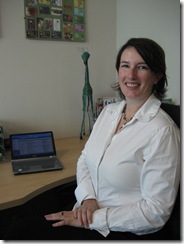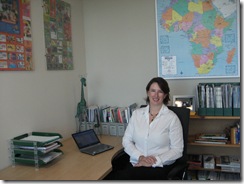
In recent years, the African telephony market has been dominated by the phenomenal growth of wireless services. Many fixed line operators have had to shift to wireless after suffering continual copper cable thefts and vandalism. Now the future of telephony on the continent has turned to a race to lay fibre to meet growing demand for broadband services. No-where is this more evident than on the streets of key South African cities where government and telecoms providers are pushing ahead with infrastructure plans ahead of football tournaments in 2009 (Confederations Cup) and 2010 (FIFA’s World Cup).
South African developments
South Africa is often cited as lagging behind global benchmarks with respect to Internet penetration and speed, with high prices and lack of competition dominating the environment. However the market is finally moving forward evidenced by the challenges to the regulatory regime and amount of fibre being laid across the country.
GSM operators
GSM operators, MTN and Vodacom, have both announced national fibre projects, partly to meet their own backhaul requirements, as well as to vertically expand their businesses. Both operators have made recent investments in the ISP sector with a focus on capturing an increasing share of the corporate Internet market. In June 2008, MTN announced the 100 per cent acquisition of Verizon South Africa, an ISP servicing the South African corporate market, and which currently leases bandwidth from Telkom. Verizon will be incorporated into MTN’s Network Solutions division.
Vodacom has established a separate business unit, Vodacom Business, focusing solely on the enterprise segment to be serviced via a fibre network. The operator has a five year CAPEX budget of ZAR 2.5 billion (US$250 million) for its fixed line investments.
In August, Vodacom acquired a 51 per cent stake in StorTech, a managed enterprise data centre services company, and in the same month confirmed its acquisition of Gateway’s carrier services and business network solutions subsidiaries for US$675 million.
Vodacom plans to launch its own ISP and ADSL services this year, and also owns a 10 per cent stake in WBS, which operates as iBurst and launched commercial WiMAX in October 2008 with Vodacom’s support.

Fixed line operators
South African fixed line incumbent, Telkom is coming under increasing pressure from competition with respect to the supply of capacity as well as end-consumer offerings. Telkom is investing heavily in its own fibre network in order to reduce the impact of continuing loss of cable due to theft. In the year to March 31, 2008, Telkom lost R980 million worth of copper cable to theft.
Second national operator, Neotel has been operational in the wholesale and enterprise market for two years. Its first consumer offering was launched in May 2008; however services remain limited while it expands its national fibre network with a 10-year CAPEX budget of R11 billion.
Infrastructure partners
Outside of the licensed service providers, the market has seen the emergence of independent infrastructure players seeking to leverage the demand for fibre, ahead of the implementation of emerging municipality restrictions on the right to lay fibre such as those under the proposed bylaws in Johannesburg, which will limit rights of way.
Dark Fibre Africa (DFA), a provider of ducting infrastructure for dark fibre in South Africa, is an independent player offering an open access model to all licensed operators on equal terms. DFA is jointly owned by Community Investment Ventures, a black-owned investment holding company, and VenFin. ABSA Bank purchased a 10 per cent stake in DFA in September 2008 for an estimated R950 million.
DFA plans to invest R2 billion over the next three years in its fibre optic ducting infrastructure. The company offers network operators substantial cost-savings on the civil engineering costs through a shared infrastructure, yet enables retention of ownership of their own cables. 200km of fibre has already been laid in key metropolitan areas in three South African provinces of Gauteng, KwaZulu-Natal and the Western Cape. By Q408, DFA would have laid more than 700km in Gauteng; and 150km in Cape Town and Durban by mid-2009.
InfraCo is a company established as a state-led initiative to lower access costs to broadband services and thus drive broadband penetration. InfraCo is majority owned by the South African government with a 26 per cent stake held by Tata, a key stakeholder in Neotel. The South African government has committed R600 million for its national fibre network, and R700 million for the AWCC submarine cable along West Africa in which InfraCo is a 26 per cent stakeholder.
InfraCo grew out of the development of the second national operator licensee consortium and as such has a close relationship with the deployment of fibre for Neotel. Once InfraCo is able to obtain its own operating licence under the modifying South African telecoms regulation, it too will likely be looking to partner with other licensed service providers to lay their fibre.
Other developments in Africa
Investments in fibre on the continent are not limited to South Africa; for example, Guinea Telecom (Guinea Bissau) is planning a national fibre optic network following a fresh US$50 million investment by China in October. However with more challenging infrastructure environments and greater expanse of rural areas, alternatives to fibre are also being sought across Africa.
In September, Google announced its own push to lower bandwidth costs and drive Internet usage in Africa through an aggressive satellite strategy as an alternative to deploying fibre across the continent. Phase I of the 16 satellite project is estimated to cost US$750 million, and Google indicates it could lower bandwidth costs by a staggering 95 per cent in some markets.
Announced fibre capex plans

Source: Operator results and Green Giraffe market analysis
Michèle Scanlon is principal consultant at Green Giraffe, an independent South African-based telecoms consultancy with focusing on commercial & technical strategies for emerging market operators with strong experience of the African market. Michèle can be contacted at michele.scanlon@greengiraffe.cc.





0 comments ↓
There are no comments yet...Kick things off by filling out the form below.
Leave a Comment